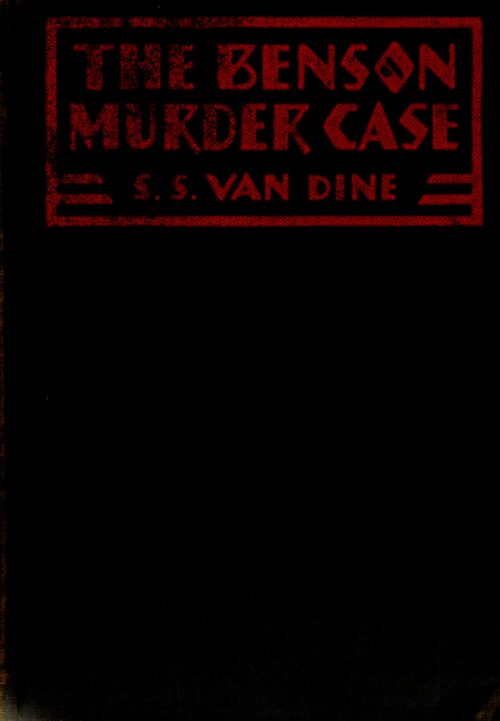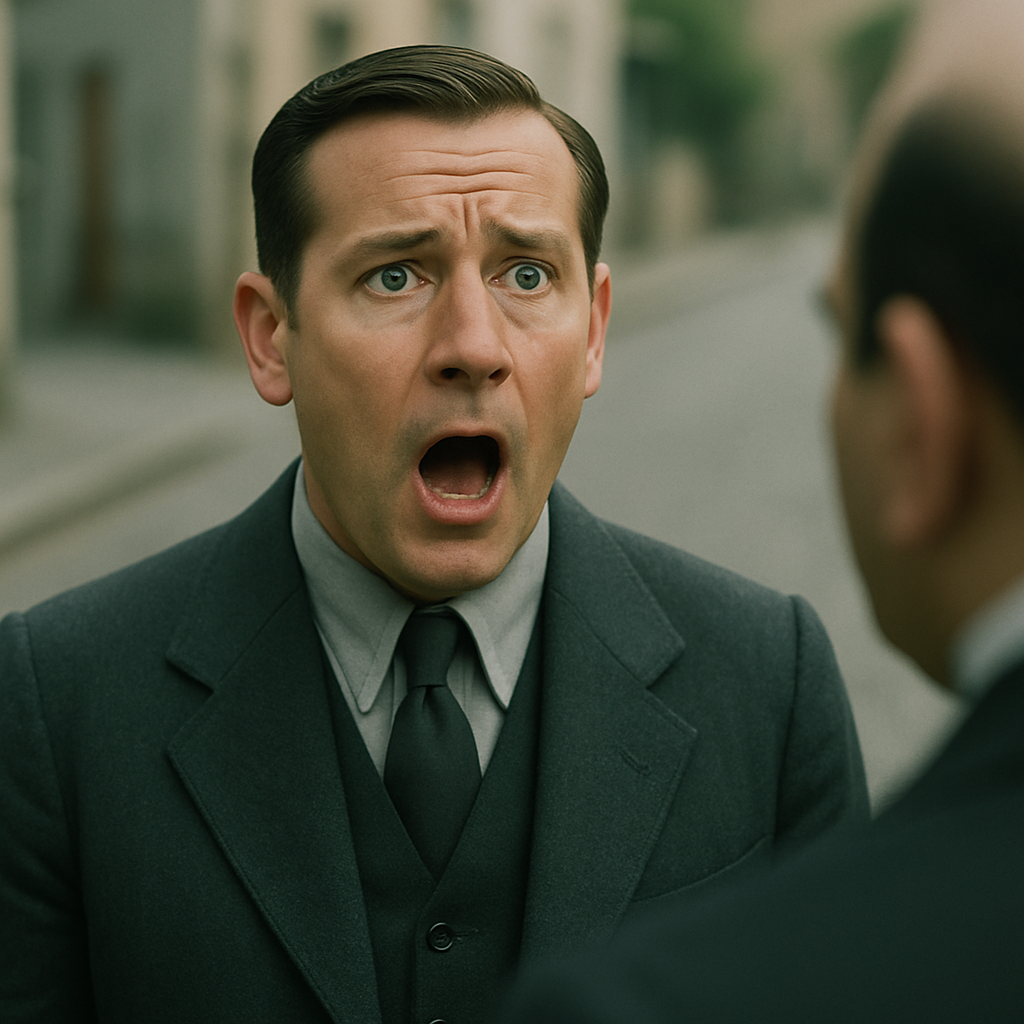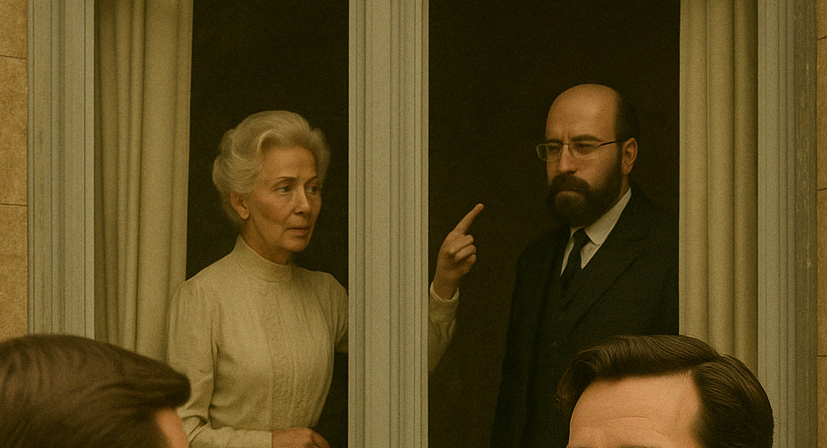注記(区切り記号について)
この翻訳文には、点字に対応させるための区切り記号(マス空け)を入れています。
「|」 … 1マスあけ
「||」 … 2マスあけ
点訳の際に必要となる区切りを、見える形で示しています。
読み進めるうちに、文章のリズムや切れ目を意識していただければ幸いです。
同時に、『Brille Editor System ver.8』用の『BESファイル』を、点訳作品アーカイブのページにてダウンロードできるように準備中です。(点訳作品アーカイブはこちら💁)
※ 人名の表示は、墨字の翻訳文ではその切れ目を慣例のとおり中点「・」ですが、点字では、中点及び「マス空け」は採用せずに、「つなぎ符」で表記しています。その理由については💁(準備中)
THE BENSON MURDER CASE
S. S. VAN DINE
CHAPTER I.
Philo Vance at Home
||||||||ベンスン|殺人|事件
||||||||S.S.ヴァン_ダイン
||||||第一章
||||<フィロ_ヴァンス>の|部屋
(Friday, June 14; 8.30 a.m.)
It happened that, on the morning of the momentous June the fourteenth when the discovery of the murdered body of Alvin H. Benson created a sensation which, to this day, has not entirely died away, I had breakfasted with Philo Vance in his apartment. It was not unusual for me to share Vance’s luncheons and dinners, but to have breakfast with him was something of an occasion. He was a late riser, and it was his habit to remain incommunicado until his midday meal.
(6月|14日|金曜日|午前|8時|30分)
| <アルヴィン_H_ベンスン>の|殺害された|死体が|発見され、|その|衝撃が|いまなお|完全には|消え去って|いない|あの|運命の|日、|6月|14日の|朝の|ことだった。||私は|フィロ_ヴァンスの|アパートで|朝食を|ともにしていた。||ヴァンスと|昼食や|夕食を|共にする|ことは|珍しく|なかったが、|朝食と|なると|話は|別だった。||彼は|朝は苦手な方で、|正午までは|人と|会わないのを|習慣に|していたからだ。
The reason for this early meeting was a matter of business—or, rather, of æsthetics. On the afternoon of the previous day Vance had attended a preview of Vollard’s collection of Cézanne water-colors at the Kessler Galleries, and having seen several pictures he particularly wanted, he had invited me to an early breakfast to give me instructions regarding their purchase.
この|異例の|朝食の|わけは、|仕事上、|いや|むしろ、|美術に|関わる|用件で|あった。||前日の|午後、|ヴァンスは|<ケスラー_画廊>で|開かれた|<ヴォラール_コレクション>の<セザンヌ|水彩|画展>の|内覧会に|出かけ、|どうしても|手に入れたい|絵を|いくつか|見つけた。||その|購入|手続きを|私に|依頼|するために、|彼は|わざわざ|朝早い|食卓に|私を|招いたので|ある。
A word concerning my relationship with Vance is necessary to clarify my rôle of narrator in this chronicle.
ここで|この|記録の|語り手としての|私の|立場を|明らかに|するために、|私と|ヴァンスとの|関係に|ついて、|一言|触れて|おく|必要が|あるだろう。
The legal tradition is deeply imbedded in my family, and when my preparatory-school days were over, I was sent, almost as a matter of course, to Harvard to study law. It was there I met Vance, a reserved, cynical and caustic freshman who was the bane of his professors and the fear of his fellow-classmen. Why he should have chosen me, of all the students at the University, for his extra-scholastic association, I have never been able to understand fully.
私の|家系は|法律家の|伝統が|深く|根付いており、|<プレパラトリー|スクール>||大学|進学の|ための|私立|学校||を|終えると、|当然の|ように|<ハーヴァード>||1636年に|設置された|アメリカで|最も|古い|名門|大学||へ|進み、|法律を|学ぶことに|なった。||そこで|出会ったのが|ヴァンスだった。||彼は|内向的で|皮肉っぽく、|棘のある|口ぶりの|新入生で、|教授たちの|頭痛の|種であり、|同級生|たちに|とっては|恐れられる|存在だった。||なぜ、|大学じゅうの|学生の|中から、|こともあろうに|私を|学校の|外での|友人に|選んだのか、|その|理由は|今なお|完全には|理解できない。
My own liking for Vance was simply explained: he fascinated and interested me, and supplied me with a novel kind of intellectual diversion. In his liking for me, however, no such basis of appeal was present.
I was (and am now) a commonplace fellow, possessed of a conservative and rather conventional mind. But, at least, my mentality was not rigid, and the ponderosity of the legal procedure did not impress me greatly—which is why, no doubt, I had little taste for my inherited profession—; and it is possible that these traits found certain affinities in Vance’s unconscious mind. There is, to be sure, the less consoling explanation that I appealed to Vance as a kind of foil, or anchorage, and that he sensed in my nature a complementary antithesis to his own. But whatever the explanation, we were much together; and, as the years went by, that association ripened into an inseparable friendship.
私|自身が、|ヴァンスに|惹かれた|理由は|単純だった。||彼は|私を|魅了し、|興味をかき立て、|これまでにない|知的な|刺激を|与えて|くれたのである。||だが、|彼が|私に|好意を|持った|理由は、|そうした|魅力に|よるものでは|なかったと|思う。
私は|(そして|今も|なお)|ごく|平凡な|男で、|保守的で|かなり|常識的な|頭の|持ち主に|すぎない。||ただ、|少なくとも|凝り固まった|考えを|持っている|わけではなく、|法律の|手続きを|深く|考える|ことには|あまり|関心が|なかった。||だからこそ、|私は|父親と|同じ|職業に|大した|興味を|持てなかったのだ。||おそらく|そうした|性格が、|ヴァンスの|無意識の|中で|何らかの|類似性を|感じたのだろう。||いや、|もっと|慰めに|ならない|説明として、|彼にとって|私は|一種の|比較|対象、|あるいは|単なる|<拠り所>のような|存在であり、|彼の|本性に|対して|補完的な|反対|要素を|見いだして|いただけかも|しれない。||だが|理由は|どうあれ、|私たちは|しばしば|行動を|共にし、|年を|重ねるうちに|その|交際は|切り離せぬ|友情へと|育っていった。
Upon graduation I entered my father’s law firm—Van Dine and Davis—and after five years of dull apprenticeship I was taken into the firm as the junior partner. At present I am the second Van Dine of Van Dine, Davis and Van Dine, with offices at 120 Broadway.
At about the time my name first appeared on the letter-heads of the firm, Vance returned from Europe, where he had been living during my legal novitiate, and, an aunt of his having died and made him her principal beneficiary, I was called upon to discharge the technical obligations involved in putting him in possession of his inherited property.
|卒業後、|私は|父の|法律|事務所である<ヴァンダイン|&|デイヴィス>に入り、|5年間の|退屈な|見習い|期間を|過ごして、|ようやく|若手|共同|経営者に|迎えられた。|今では|<ヴァンダイン,|デイヴィス|&|ヴァンダイン>の、|第二の|ヴァンダインとして、|<ブロードウェイ|120番地>に|事務所を|構えている。
ちょうど|私の|名前が|事務所の|レターヘッド||会社名、|所在地などを|便せん|上部に|印刷|したもの||に|初めて|載ったころ、|ヴァンスは|ヨーロッパ|生活から|帰国した。||彼は、|私の|弁護士|見習いの|あいだ、|海外に|滞在|していたが、|ちょうど|その頃に|叔母が|亡くなり、|遺産の|大部分を|彼に|残したので|ある。||私は|その|手続きを|引き受け、|ヴァンスが|相続|財産を|正式に|受け取れる|ようにした。
This work was the beginning of a new and somewhat unusual relationship between us. Vance had a strong distaste for any kind of business transaction, and in time I became the custodian of all his monetary interests and his agent at large. I found that his affairs were various enough to occupy as much of my time as I cared to give to legal matters, and as Vance was able to indulge the luxury of having a personal legal factotum, so to speak, I permanently closed my desk at the office, and devoted myself exclusively to his needs and whims.
この|出来事は、|私たちの|間に|新しく|やや|風変わりな|関係が|始まる|きっかけと|なった。||ヴァンスは|あらゆる|種類の|事務|処理を|ひどく|嫌っており、|やがて|私は|彼の|財産|関係|一切を|預かる|管財人、|そして|いわば|彼の|専属の|代理人と|なった。
彼の|事務は|あらゆる|分野に|わたって|いたので、|私が|法律|事務所の|仕事に|充てようと|していた|時間の|すべてを|使ってしまう|ほどであった。||そして|ヴァンスは、|いわば、|個人で|法律|顧問を|雇えるほどの|贅沢が|できる|身分に|あったので、|私は|事務所の|机を|永久に|片付けて|おいて、|彼の|依頼と|気まぐれに|専念|することに|したのである。
If, up to the time when Vance summoned me to discuss the purchase of the Cézannes, I had harbored any secret or repressed regrets for having deprived the firm of Van Dine, Davis and Van Dine of my modest legal talents, they were permanently banished on that eventful morning; for, beginning with the notorious Benson murder, and extending over a period of nearly four years, it was my privilege to be a spectator of what I believe was the most amazing series of criminal cases that ever passed before the eyes of a young lawyer. Indeed, the grim dramas I witnessed during that period constitute one of the most astonishing secret documents in the police history of this country.
もし|私が、|<ヴァンダイン、デイヴィス|&|ヴァンダイン>法律|事務所から、|自分の|ささやかな|才能を|奪って|しまったことに|対して、|秘かに|後悔の念を|抱いて|いたとしても、|セザンヌの|購入に|ついて|話し合う|ために、|ヴァンスが|私を|呼び寄せた|ときから、|その|後悔は|その|運命の|日の|朝、|永久に|消え去った。
なぜなら、|あの|悪名|高き|ベンスン|殺人|事件を|皮切りに、|ほぼ|4年に|わたって、|私は|若き|弁護士の|目に|かつて|映ったことの|ないほど、|驚くべき|一連の|犯罪|事件の|目撃者と|なる|特権を|得たからである。||実際、|私が|その間に|目にした|数々の|ぞっとする|ような|事件は、|この国の|警察史に|おける|最も|驚くべき|秘密|文書の|一つと|看做される|違いない。
Of these dramas Vance was the central character. By an analytical and interpretative process which, as far as I know, has never before been applied to criminal activities, he succeeded in solving many of the important crimes on which both the police and the District Attorney’s office had hopelessly fallen down.
これらの|事件の|主役は|ヴァンスであった。||彼は、|少なくとも|私の|知る限り、|これまで|犯罪|捜査に|適用|されたことが|ない、|分析|かつ|解釈する|方法に|よって、|警察も|地方|検事局も|完全に|お手上げと|なっていた|数々の|重大|事件を|解決して|みせたのである。
Due to my peculiar relations with Vance it happened that not only did I participate in all the cases with which he was connected, but I was also present at most of the informal discussions concerning them which took place between him and the District Attorney; and, being of methodical temperament, I kept a fairly complete record of them. In addition, I noted down (as accurately as memory permitted) Vance’s unique psychological methods of determining guilt, as he explained them from time to time.
ヴァンスとの|特別な|関係の|おかげで、|私は|彼が|関わった|事件の|すべてに|同席|したばかりで|なく、|地方|検事との|間で|交わされた|普段の|議論の|多くにも|居合わせる|ことが|できた。||そして|几帳面な|性分ゆえに、|その|経緯を|ほぼ|完全に|記録してきた。
さらに、|(記憶の|及ぶかぎりでは|あるが)|正確に、|ヴァンスが|時折|説明|してくれた|犯罪を|明らかにする|独特の|心理的|手法を|書きとめていた。
It is fortunate that I performed this gratuitous labor of accumulation and transcription, for now that circumstances have unexpectedly rendered possible my making the cases public, I am able to present them in full detail and with all their various side-lights and succeeding steps—a task that would be impossible were it not for my numerous clippings and adversaria.
この|金に|ならない|労働と|その記録を|続けて|きたことは|幸いで|あった。||というのも、|今や|思いがけない|事情によって|これらの|事件を|公に|できる|こととなり、|細かい|ところや|その|経過、|及び|周辺|事情を|詳しく|発表|することが|できるからである。 ||もし|膨大な|新聞の|切り抜きや|日記が|なかったならば、|とても|実現|できなかった|であろう。
Fortunately, too, the first case to draw Vance into its ramifications was that of Alvin Benson’s murder.
Not only did it prove one of the most famous of New York’s causes célèbres, but it gave Vance an excellent opportunity of displaying his rare talents of deductive reasoning, and, by its nature and magnitude, aroused his interest in a branch of activity which heretofore had been alien to his temperamental promptings and habitual predilections.
さらに|幸運な|ことに、|ヴァンスを|初めて|その|世界へと|引き込んだ|事件が、|<アルヴィン・ベンスン|殺人|事件>であった。
それは|ニューヨークの|有名な|<カーズ・セレーブル>||世間の|注目を|集める|事件||の|ひとつと|なったばかりか、|ヴァンスに|その|特殊な|推理の|才能を|存分に|発揮する|機会を|与え、|その|性質と|重要性に|よって、|これまでの|彼の|気まぐれな|頼み事や|えり好みから|縁遠かった|分野に、|強く|興味を|惹かれることに|なったのである。
The case intruded upon Vance’s life suddenly and unexpectedly, although he himself had, by a casual request made to the District Attorney over a month before, been the involuntary agent of this destruction of his normal routine.
その|事件は、|突然|予期せず|ヴァンスの|生活に|入り込んで|きた。||もっとも|ひと月あまり|前に、|ヴァンス|自身が|地方|検事に|ちょっとした|依頼を|したのが|きっかけで、|いつもの|暮らしが|思いがけず|崩れることに|なったのだが。
The thing, in fact, burst upon us before we had quite finished our breakfast on that mid-June morning, and put an end temporarily to all business connected with the purchase of the Cézanne paintings. When, later in the day, I visited the dsdsKessler Galleries, two of the water-colors that Vance had particularly desired had been sold; and I am convinced that, despite his success in the unravelling of the Benson murder mystery and his saving of at least one innocent person from arrest, he has never to this day felt entirely compensated for the loss of those two little sketches on which he had set his heart.
それは|実際には、|六月|半ばの|朝、|わたしたちが|まだ|朝食の|片づけを|していた|ところに|突然|降りかかり、|セザンヌの|絵を|買う|話は|しばらく|棚上げと|なってしまった。||その日の|午後に、|私が|ケスラー|画廊を|のぞいた|ときには、|ヴァンスが|とりわけ|欲しがっていた|水彩画の|二枚は、|すでに|売れて|しまっていた。||ベンスン|殺人|事件の|なぞを|見事に|解き明かし、|罪なき|者を|救った|手柄にも|かかわらず、|彼は|いまなお、|その|二枚の|小さな|スケッチ画を|逃したことを|すっかり|埋め合わせ|できたとは|思っていない|と、|私は|思っている。
As I was ushered into the living-room that morning by Currie, a rare old English servant who acted as Vance’s butler, valet, major-domo and, on occasions, specialty cook, Vance was sitting in a large armchair, attired in a surah silk dressing-gown and grey suède slippers, with Vollard’s book on Cézanne open across his knees.
その朝、|<カーリー>に|案内されて|部屋に|入った。||カーリーは、|古風な|英国の|使用人で、|執事で、|主人の|身の回りの|世話係で、|屋敷の|管理人で、|ときには|食事の|世話までする|めったに|見かけない|なんでも|できる|男だった。
ヴァンスは、|大きな|肘掛け椅子に|腰を|おろし、|<スーラ|シルク>のガウン||光沢のある|軽やかな|絹織物。||普段着にも|贅沢を|取り入れる|ヴァンスの|都会的な|洗練さと|余裕の|現れ||に|灰色の|スエードの|スリッパを|履いて、|膝の|上には|<ヴォラール>の|セザンヌ|画集を|広げていた。

“Forgive my not rising, Van,” he greeted me casually. “I have the whole weight of the modern evolution in art resting on my legs. Furthermore, this plebeian early rising fatigues me, y’ know.”
「立ち上がらずに|失礼、|ヴァン」
ヴァンスは|気軽に|声を|かけた。
「近代|美術の|進化の|重要性が、|いま|両脚に|のしかかって|いるんだ。||それに|この|庶民的な|早起きと|いうやつは、|どうにも|身に|こたえる」
He riffled the pages of the volume, pausing here and there at a reproduction.
“This chap Vollard,” he remarked at length, “has been rather liberal with our art-fearing country. He has sent a really goodish collection of his Cézannes here. I viewed ’em yesterday with the proper reverence and, I might add, unconcern, for Kessler was watching me; and I’ve marked the ones I want you to buy for me as soon as the Gallery opens this morning.”
He handed me a small catalogue he had been using as a book-mark.
彼は|本を|ぱらぱらと|めくりながら、|ところどころで|複製画に|目をとめた。
「この|ヴォラールと|いう人はね。」
しばらくして|彼は|言った。
「芸術を|恐れる|我が国に、|ずいぶん|気前よく|贈りものを|してくれたよ。||立派な|セザンヌの|数々を|運んできて|くれた。||昨日、|私は|その絵を|それなりの|敬意を|払って|鑑賞した。||ちなみに、|<ケスラー>に|見張られて|いたが、|私は|平然と|していたよ。||そして|今朝、|画廊が|開いたら、|君に|買ってきて|欲しい|ものに|印を|つけておいた。」
彼は、|それまで|しおり代わりに|使っていた|小さな|カタログを|私に|手渡した。
ーーーーーーーーーーーーーーーーーーーーーーーーーー「芸術を恐れるアメリカ」について💁
“A beastly assignment, I know,” he added, with an indolent smile.
“These delicate little smudges with all their blank paper will prob’bly be meaningless to your legal mind—they’re so unlike a neatly-typed brief, don’t y’ know.
And you’ll no doubt think some of ’em are hung upside-down,—one of ’em is, in fact, and even Kessler doesn’t know it.
But don’t fret, Van old dear. They’re very beautiful and valuable little knickknacks, and rather inexpensive when one considers what they’ll be bringing in a few years.
Really an excellent investment for some money-loving soul, y’ know—inf’nitely better than that Lawyer’s Equity Stock over which you grew so eloquent at the time of my dear Aunt Agatha’s death.”1
「つまらない|雑用を|頼んで|いるのは|わかってるよ」と、|彼は|のんびりとした|笑みを|浮かべながら|そう|付け加えた。
「この|余白ばかりの、|掠れたような|小さな|スケッチなんか、|法律家の|きみには|たぶん|意味|不明だろう。||きっちり|タイプされた|裁判|書類とは|まるで|違うからね。
きみには|何枚か|逆さに|掛けられて|いるように|見えるだろう。||実際、|ひとつは|本当に|逆さまなんだ。||しかも、|そのことに|ケスラーでさえ|気づいて|いないんだよ。
まあ、|心配|することは|ないよ、|ヴァン。|これらは|とても|美しくて|価値のある|小品で、|数年後に|どれだけ|値打ちが|出るかを|思えば、|むしろ|安い|買い物なんだ。
本当に|金を|儲けたい|人間に|とっては、|実に|優れた|投資だよ。||伯母の|<アガサ>が|亡くなった|とき、|君が|やけに|熱弁を|振るっていた|<弁護士|おすすめの|株>なんかより、|はるかに|ましだね。」
Vance’s one passion (if a purely intellectual enthusiasm may be called a passion) was art—not art in its narrow, personal aspects, but in its broader, more universal significance.
And art was not only his dominating interest, but his chief diversion.
He was something of an authority on Japanese and Chinese prints; he knew tapestries and ceramics; and once I heard him give an impromptu causerie to a few guests on Tanagra figurines, which, had it been transcribed, would have made a most delightful and instructive monograph.
ヴァンスが|唯一、|情熱を|傾けた|対象(もっとも、それを情熱と呼んでよければの話だが)は|芸術だった。||しかも、|それは|狭い|個人的な|趣味と|してではなく、|より|広く|普遍的な|価値を|持つものと|しての|芸術である。
芸術は、|彼にとって|最大の|関心事と|いうだけでなく、|何よりの|楽しみでも|あった。||日本や|中国の|版画に|ついては、|素人離れ|した|知識を|もっていた。||彼は|<タペストリー>||絵画のように|見える|大きな|布の|壁掛け||や|陶磁器にも|詳しく、|かつて、|数人の|客を|前に|<タナグラ|土偶>||古代|ギリシアの|小さな|素焼きの|人形||に|ついて|即席の|談話を|したことが|あった。||その話を|記録に|残して|いたなら、|愉快で|しかも|為になる|研究|論文に|なっただろう。
Vance had sufficient means to indulge his instinct for collecting, and possessed a fine assortment of pictures and objets d’art.
His collection was heterogeneous only in its superficial characteristics: every piece he owned embodied some principle of form or line that related it to all the others.
One who knew art could feel the unity and consistency in all the items with which he surrounded himself, however widely separated they were in point of time or métier or surface appeal.
Vance, I have always felt, was one of those rare human beings, a collector with a definite philosophic point of view.
ヴァンスは、蒐集欲を|十分に|満たせるほどの|余裕があり、|優れた|絵画や|美術|工芸品を|所有していた。||彼の|コレクションは|一見すると|バラバラに|見えたが、|所有する|どの|作品にも|形や|線の|上で|共通する|法則に|則っており、|それが|他の|作品|すべてと|つながりを|もっていた。||芸術に|通じた|人なら、|彼を|取り巻く|全ての|作品が、|時代や|ジャンルや|見た目の|魅力において|どれほど|隔たりが|あろうとも、|そこには|一貫した|まとまりが|あるのを|感じ取る|ことが|できた。
ヴァンスは、私は|いつも|感じて|いたのだが、稀に見る|存在で、|明確な|哲学的|視点を|備えた|蒐集家で|あった。
His apartment in East Thirty-eighth Street—actually the two top floors of an old mansion, beautifully remodelled and in part rebuilt to secure spacious rooms and lofty ceilings—was filled, but not crowded, with rare specimens of oriental and occidental, ancient and modern, art.
His paintings ranged from the Italian primitives to Cézanne and Matisse; and among his collection of original drawings were works as widely separated as those of Michelangelo and Picasso.
Vance’s Chinese prints constituted one of the finest private collections in this country. They included beautiful examples of the work of Ririomin, Rianchu, Jinkomin, Kakei and Mokkei.
<東38丁目>||ニューヨーク市|<マンハッタン>区に|実在する|通り||に|ある|彼の|住まいは、|古い|邸宅の|二階と|三階を|使い、|広々とした|部屋と|高い|天井を|確保|するために|美しく|改装され、|一部は|改築|されていた。||東洋と|西洋、|古代から|現代に|いたる|希少な|美術品で|一杯だったが、|それは|決して|雑然と|している|ようには|見えなかった。
彼の|絵画|コレクションは、|イタリアの|初期|<ルネサンス>から|セザンヌや|<マティス>にまで|及んでいた。||また|デッサンの|蒐集も|幅広く、|<ミケランジェロ>から|<ピカソ>に|いたるまでの|作品が|含まれていた。
ヴァンスの|中国|版画|コレクションは、|アメリカでも|屈指の|個人|所有の|ひとつであった。|その中には、|李如珉(リリオミン)、|李安中(リアンチュー)、|荊浩(ジンコーミン)、|郭熙(カケイ)、|牧谿(モッケイ)と|いった|代表的な|優れた|作品も|含まれていた。
“The Chinese,” Vance once said to me, “are the truly great artists of the East. They were the men whose work expressed most intensely a broad philosophic spirit.
By contrast the Japanese were superficial. It’s a long step between the little more than decorative souci of a Hokusai and the profoundly thoughtful and conscious artistry of a Ririomin.
Even when Chinese art degenerated under the Manchus, we find in it a deep philosophic quality—a spiritual sensibilité, so to speak.
And in the modern copies of copies—what is called the bunjinga style—we still have pictures of profound meaning.”
「中国人こそ、|東洋に|おける|真に|偉大な|芸術家だ」と、|ヴァンスが|あるとき|私に|語った|ことがある。
「彼らの|作品こそ、|広く|深い|哲学的|精神を|最も|強烈に|表現|しているのだ。
対照的に、|日本人は|うわべだけだ。||<北斎>の|装飾|以上は|なにもない|芸術と、|李如珉(リリオミン)の|深い|考えに|沈み混む|意識を|表す|芸術」との|あいだには、|大きな|隔たりがある。||
中国|美術が|満州族の|時代に|堕落した|ときでさえ、|その中には|深い|哲学的|性質、|いわば|精神的な|感受性が|見いだされる。
Vance’s catholicity of taste in art was remarkable. His collection was as varied as that of a museum.
It embraced a black-figured amphora by, a proto-Corinthian vase in the Ægean style, Koubatcha and Rhodian plates, Athenian pottery, a sixteenth-century Italian holy-water stoup of rock crystal, pewter of the Tudor period (several pieces bearing the double-rose hall-mark), a bronze plaque by Cellini, a triptych of Limoges enamel, a Spanish retable of an altar-piece by Vallfogona, several Etruscan bronzes, an Indian Greco Buddhist, a statuette of the Goddess Kuan Yin from the Ming Dynasty, a number of very fine Renaissance wood-cuts, and several specimens of Byzantine, Carolingian and early French ivory carvings.
ヴァンスの|美術の|趣味は|注目すべき|ものであった。||彼の|コレクションは、|博物館に|匹敵|するほど|多岐に|わたっていた。
<アマシス>||紀元前|6世紀|中ごろ|古代|ギリシアで|活動した|陶器|職人||作の|黒い|絵の|描かれた|<アンフォラ>||両手|取って付きの|大型の|壺||や、|<エーゲ海>|様式の|前期|<コリントス>||古代|ギリシアの|都市|国家||様式の|花瓶を|はじめ、|<クバッチャ>||16世紀から|17世紀の|イスラム|世界の|陶器||や|<ロドス島>||ギリシアの|島。||15世紀から、|16世紀に|かけて、|オスマン|帝国の|支配下に|あった||の|陶器、|さらに|<アテナイ>||紀元前|8世紀から|4世紀まで|存在した|古代|ギリシャの|代表的な|都市|国家||の|陶器が|あった。||加えて、|16世紀|イタリアの|<ロック|クリスタル>||水晶の|中でも|特に|透明度の|高いもの||製の|聖水盤||教会|入口に|置かれる|水桶||や、<テューダー>朝||1485年から|
1603年までの|イングランド|王朝||の|食器(二重の|薔薇の|刻印の|保証付き)も|並んでいた。||さらに、|<チェリーニ>による|青銅の|装飾品、|<リモージュ・エマイユ>||フランス・リモージュ|地方で|発達した|七宝焼||の|宗教画、|<ヴァルフォゴナ>||スペインの|カタルーニャ|地方の|村||の|スペイン|祭壇画の|一部も|あった。||そこには|また、|<エトルリア>||イタリア|半島で|古代|ローマ|以前から|栄えていた|文明||の|青銅器、|インドの|<グレコ>仏教||紀元前|2世紀から|紀元後|3世紀に|インド|北西部(ガンダーラ地方)で|栄えた|美術|様式||の|美術品、|中国の|<明>時代の|小さな|観音像も|並び、|そして|多数の極めて|優れた|ルネサンスの|木版画や、|<ビザンティン>時代||4世紀から|15世紀に|かけて|続いた|東|ローマ|帝国||や|<カロリング>朝||8世紀から|10世紀に|かけて|西|ヨーロッパを|支配した|王朝||の|代表作、|初期|フランスの|象牙|彫刻の|逸品まで|含まれていた。
His Egyptian treasures included a gold jug from Zakazik, a statuette of the Lady Nai (as lovely as the one in the Louvre), two beautifully carved steles of the First Theban Age, various small sculptures comprising rare representations of Hapi and Amset, and several Arrentine bowls carved with Kalathiskos dancers.
ヴァンスの|エジプト|蒐集品|には、|<ザカジク>||古代|都市|ブバスティス|遺跡||から|出た|黄金の|水差し、|<ルーヴル>|美術館に|あるものにも|劣らぬ|美しさを|誇る|<レディ・ナイ>||古代|エジプトの|女性像の|名前||の小さな石像、|<テーベ>|第一|時代||紀元前|二千年||初頭の|古代|エジプト|統一|国家の|首都||の|見事に|刻まれた|二つの|石碑、|稀少な|<ハピ>神や|<アムセト>神||古代|エジプトの|神話の|神々||を|表した|さまざまな|石像、|そして|<カラティスコス>||古代|ギリシアの|踊り子が|腰に|つける|籠||の|踊り子が|描かれた|<アルレッティーネ>||古代|ローマ|時代|初期に|広まった|赤色の|高級|陶器||の|食器が|数点|含まれていた。
On top of one of his embayed Jacobean book cases in the library, where most of his modern paintings and drawings were hung, was a fascinating group of African sculpture—ceremonial masks and statuette-fetishes from French Guinea, the Sudan, Nigeria, the Ivory Coast, and the Congo.
さらに|図書室では、|近代|絵画や|デッサンの|大部分が|壁に|掛けられて|いたが、|<ジャコビアン>|様式||17世紀|初頭、<イングランド>王|<ジェームズ>1世 の|時代に|流行した|家具の|様式||の|張り出し|本棚の|ひとつに、|アフリカ|美術の|魅力的な|一群|フランス領|ギニア、|スーダン、|ナイジェリア、|象牙|海岸、|<コンゴ>から|もたらされた|儀式用の|仮面や、|小さな|偶像が|飾られていた。
A definite purpose has animated me in speaking at such length about Vance’s art instinct, for, in order to understand fully the melodramatic adventures which began for him on that June morning, one must have a general idea of the man’s penchants and inner promptings. His interest in art was an important—one might almost say the dominant—factor in his personality. I have never met a man quite like him—a man so apparently diversified, and yet so fundamentally consistent.
ここまで|ヴァンスの|芸術的な|こだわりに|ついて|長々と|語って|きたのには、|明確な|理由がある。||というのも、|あの|六月の|朝から|彼に|降りかかった|劇的な|冒険を|十分に|理解する|ためには、|彼の|好みや|考え方に|ついて、|一般的な|認識を|持っておかねば|ならないからだ。
芸術への|関心は、|彼の|性格に|おける|重要な、|いや、|むしろ|支配的な|要素であった。||私は|彼のような|人物に|出会った|ことがない。||外見は|きわめて|多様に|見えながら、|基本的には|驚くほど|一貫性を|保っていた|人間|であった。
Vance was what many would call a dilettante. But the designation does him injustice.
He was a man of unusual culture and brilliance.
An aristocrat by birth and instinct, he held himself severely aloof from the common world of men.
In his manner there was an indefinable contempt for inferiority of all kinds.
The great majority of those with whom he came in contact regarded him as a snob. Yet there was in his condescension and disdain no trace of spuriousness.
ヴァンスは、|多くの|人々が|道楽者と|呼ぶであろう|人物だった。||だが|その|呼び方は|彼を|不当に|貶める|ものである。
彼は|並外れた|教養と|知性を|備えていた。||生まれも|性格も|根っからの|上流|階級であり、|庶民的な|世界からは|厳しく|距離を|置いていた。
彼の|態度には、|知性や|美的|感覚を|欠いた|あらゆる|ものを|軽蔑|しているのが|見てとれた。
そのため|彼と|接する|大多数の|人々は、|彼を|紳士ぶった|鼻持ち|ならない|男だと|みなした。||だが、|その|相手を|見下し|軽蔑する|態度には、|わざとらしい|ところは|少しも|なかった。
His snobbishness was intellectual as well as social.
He detested stupidity even more, I believe, than he did vulgarity or bad taste. I have heard him on several occasions quote Fouché’s famous line: C’est plus qu’un crime; c’est une faute. And he meant it literally.
彼の|人を|見下す|性格は、|人間|関係|だけでなく|知性の|面にも|あらわれていた。||ヴァンスは、|下品さや|悪趣味よりも|愚かさを|嫌って|いたのだと|思う。
私は|彼が|何度か、|<フーシェ>の|有名な|言葉|『それは|犯罪|以上のもの、|過失だ』を、|引用|するのを|聞いた|ことがある。||そして|彼は|それを|文字どおりの|意味で|口に|していた。
ーーーーーーーーーーーーーーーーーーーーーーーーー
フーシェの言葉について💁
Vance was frankly a cynic, but he was rarely bitter: his was a flippant, Juvenalian cynicism.
Perhaps he may best be described as a bored and supercilious, but highly conscious and penetrating, spectator of life. He was keenly interested in all human reactions; but it was the interest of the scientist, not the humanitarian.
Withal he was a man of rare personal charm. Even people who found it difficult to admire him, found it equally difficult not to like him.
His somewhat quixotic mannerisms and his slightly English accent and inflection—a heritage of his post-graduate days at Oxford—impressed those who did not know him well, as affectations. But the truth is, there was very little of the poseur about him.
ヴァンスは|率直に|言って|皮肉屋で|あったが、|滅多に|人を|傷つける|言い方は|しなかった。||彼の|皮肉は|むしろ|軽口や|冗談に|近い|ものであった。||おそらく、|最も|うまく|言い表す|ならば、|彼は|退屈そうで|傲慢では|あるが、|しかし|強い|自覚と|鋭い|洞察力を|持つ|人生の|評論家、|と|いうべきだろう。||彼は|人間の|あらゆる|反応に|強い|興味を|持っていたが、|それは|人道的な|観点から|ではなく、|科学者|としての|興味であった。||その上、彼は|稀にみる|個人的な|魅力を|備えていた。||彼を|尊敬|するのが|難しい|人々でさえ、|同じく|彼を|嫌いに|なることも|難しかった|のである。
彼の|どこか|風変わりな|仕草や、|<オックスフォード|大学>での|大学院|時代に|身につけた|軽い|イギリス|風の|アクセントや|抑揚は、|彼を|よく|知らない|人たちには|わざとらしく|映った。||だが|実際の|ところ、|彼の|中に|気取ったような|ところは|ほとんど|なかった。
He was unusually good-looking, although his mouth was ascetic and cruel, like the mouths on some of the Medici portraits2; moreover, there was a slightly derisive hauteur in the lift of his eyebrows.
彼は|ひときわ|容貌に|恵まれて|いたが、|口もとには|禁欲的な|冷たさがあり、|それは|<メディチ>家||||の|肖像画に|見られる|口もとを|思わせた。||また、|眉を|わずかに|上げたときに|やや|人を|あざけるような|高慢さあった。

Despite the aquiline severity of his lineaments his face was highly sensitive. His forehead was full and sloping—it was the artist’s, rather than the scholar’s, brow. His cold grey eyes were widely spaced. His nose was straight and slender, and his chin narrow but prominent, with an unusually deep cleft.
When I saw John Barrymore recently in Hamlet I was somehow reminded of Vance; and once before, in a scene of Cæsar and Cleopatra played by Forbes-Robertson, I received a similar impression.3
鷲のように|鋭い|目鼻立ちで|ありながら、|その|表情は|きわめて|繊細だった。||額は|広く|斜めに伸び、|学者と|いうより|芸術家に|近かった。||冷ややかな|灰色の|目は|大きく|離れており、|鼻は|真っすぐで|細く、|顎は|狭いながらも|突き出し、|深い|割れ目が|走っていた。||近年|アメリカの|名優|<ジョン・バリモア>の|『ハムレット』を|観たとき、|なぜか|ヴァンスの|面影が|よみがえった|ことがあるし、|以前|イギリスの名優|<フォーブス・ロバートソン>が|『カエサルと|クレオパトラ』を|演じた|場面でも、|同じ|印象を受けた。
Vance was slightly under six feet, graceful, and giving the impression of sinewy strength and nervous endurance.
He was an expert fencer, and had been the Captain of the University’s fencing team. He was mildly fond of outdoor sports, and had a knack of doings things well without any extensive practice. His golf handicap was only three; and one season he had played on our championship polo team against England. Nevertheless, he had a positive antipathy to walking, and would not go a hundred yards on foot if there was any possible means of riding.
ヴァンスの|背丈は|六フィート||約183センチ||に|わずかに|届かぬほどで、|しなやかで|強靭な|筋肉と|精神的な|我慢強さを|思わせる|体つきを|していた。
フェンシングの|達人であり、|大学の|フェンシング・チームの|主将を|務めた|こともある。||野外|スポーツも|嫌いではなく、|熱心な|練習を|しなくても|何ごとも|器用に|こなした。
ゴルフの|ハンディキャップは|わずかに|三で、|一度は|全米|選手権の|ポロ・チームに|入り、|イギリスと|対戦|したことも|あった。||それでも|歩くことには|強い|嫌悪感を|抱き、|もし|乗り物が|利用|できるなら|百ヤードの|道のりでさえ|歩こうとは|しなかった。
In his dress he was always fashionable—scrupulously correct to the smallest detail—yet unobtrusive. He spent considerable time at his clubs: his favorite was the Stuyvesant, because, as he explained to me, its membership was drawn largely from the political and commercial ranks, and he was never drawn into a discussion which required any mental effort.
He went occasionally to the more modern operas, and was a regular subscriber to the symphony concerts and chamber-music recitals.
服装は|常に|流行を|追い、|細かい|ところまで|完璧で|ありながら、|決して|でしゃばっては|いなかった。||クラブ||上流|階級の|男性が|集う|会員制の|社交場||に|足を|運ぶ|時間も|多く、|とりわけ|<ステュイヴサント・クラブ>を|好んだ。||というのも、|そこの|会員は|主に|政界や|経済界の|人々で|構成|されているので、|頭を|使う|議論には|ならないからと|私に|説明|してくれた。
現代的な|オペラを|ときおり|鑑賞し、|交響楽や|室内楽の|定期|会員でも|あった。
Incidentally, he was one of the most unerring poker players I have ever seen.
I mention this fact not merely because it was unusual and significant that a man of Vance’s type should have preferred so democratic a game to bridge or chess, for instance, but because his knowledge of the science of human psychology involved in poker had an intimate bearing on the chronicles I am about to set down.
ちなみに、|彼は|私が|これまでに|見た|中で、|最も|間違いの|少ない|ポーカーの|名手の|一人だった。
この|事実を|私が|引き合いに|出したのは、|ヴァンスのような|男が、|ブリッジや|チェスよりも|極めて|庶民的な|ゲームを|好んだことが|異例で|重要だから|という|わけではない。||例えば、|彼が|ポーカー|という|人間|心理学の|分野に|通じて|いたことが、|これから|記す|記録に|深い|かかわりを|持つからだ。
Vance’s knowledge of psychology was indeed uncanny. He was gifted with an instinctively accurate judgment of people, and his study and reading had co-ordinated and rationalized this gift to an amazing extent.
He was well grounded in the academic principles of psychology, and all his courses at college had either centered about this subject or been subordinated to it. While I was confining myself to a restricted area of torts and contracts, constitutional and common law, equity, evidence and pleading, Vance was reconnoitring the whole field of cultural endeavor.
He had courses in the history of religions, the Greek classics, biology, civics and political economy, philosophy, anthropology, literature, theoretical and experimental psychology, and ancient and modern languages.4 But it was, I think, his courses under Münsterberg and William James that interested him the most.
ヴァンスの|心理学の|知識は、|まるで|魔法の|ようだった。
彼は、|生まれつき|人を|見抜く|正確な|判断力に|恵まれ、|研究と|解釈|によって、|その|能力を|整理し|理論として、|驚くほどの|域にまで|高めていた。
彼は、|心理学の|基本に|しっかりと|基礎を|持ち、|大学での|すべての|履修|科目は、|この|学科を|中心|とするか、|あるいは|それに|付随していた。
私が|不法|行為や|契約、|憲法や|コモンロー、|衡平法、|証拠法や|訴訟|手続|といった|かぎられた|分野に|集中|しているときに、|ヴァンスは|知的で|芸術的な|分野の|すべてを|探っていた。
宗教学、|ギリシャ|古典、|生物学、|政治学や|経済学、|哲学、|人類学、|文学、|理論|および|実験|心理学、|さらには|古代語から|現代語|までを|履修して|いたのである。||だが|彼が|とりわけ|興味を|持ったのは、|<ミュンスターベルク>*1と|<ウィリアム・ジェイムズ>*2の|講義|だったと|思う。
ーーーーーーーーーーーーーーーーーーーーーーーーーー
*1|<ミュンスターベルク>は、|ドイツ|生まれで、|アメリカに|渡った|心理|学者。||応用|心理学を|切り開いた|人物で、|ハーヴァード|大学で|教鞭を|とった。
*2|<ウィリアム・ジェイムズ>は、|アメリカの|哲学者、|心理|学者で|『アメリカ|心理学の|父』と|呼ばれる|存在。||著書|『心理学|原理』で|知られる。
Vance’s mind was basically philosophical—that is, philosophical in the more general sense.
Being singularly free from the conventional sentimentalities and current superstitions, he could look beneath the surface of human acts into actuating impulses and motives.
Moreover, he was resolute both in his avoidance of any attitude that savored of credulousness, and in his adherence to cold, logical exactness in his mental processes.
ヴァンスの|精神は、|もともと|哲学的|だった。|といっても、|より|一般的な|意味での|哲学的|である。||彼は|ありふれた|感傷や|流行の|迷信からは、|際立って|自由|だったので、|人間の|行為の|表面の|裏にある、|動かしている|衝動や|動機を|見通すことが|できた。
さらに|彼は、|鵜呑みに|しているような|態度を|人に|見せないこと、|自分の|思考の|過程|においては、|冷静にして|論理的な|正確さを|守ること、|この|二つを|徹底|していた。
“Until we can approach all human problems,” he once remarked, “with the clinical aloofness and cynical contempt of a doctor examining a guinea-pig strapped to a board, we have little chance of getting at the truth.”
「我々は、|全ての|人間の|問題に|対してはね」と、彼は|かつて|こう|述べた。
「板の|上の|鼠を|調べる|医者のように、|臨床的に|距離を|置き、|皮肉っぽく|軽蔑|しながら|観察|することが|できるように|ならないと、|真実に|たどりつける|見込みは|ほとんど|ないんだ。」
Vance led an active, but by no means animated, social life—a concession to various family ties.
But he was not a social animal.—I can not remember ever having met a man with so undeveloped a gregarious instinct,—and when he went forth into the social world it was generally under compulsion.
ヴァンスは|活発な|社会|生活を|おくっては|いたが、|決して|生き生きとした|ものでは|なかった。||それは|いろいろな|親族|関係に|配慮|したからである。
彼は|社交的な|人間では|なかった。||これほどまでに|社交性の|未熟な|人間に、|私は|いまだ|出会った|ことがない。||そして、|彼が|社交の|場に|出ていくのは、|たいてい|無理矢理に|呼ばれての|ことだった。
In fact, one of his “duty” affairs had occupied him on the night before that memorable June breakfast; otherwise, we would have consulted about the Cézannes the evening before; and Vance groused a good deal about it while Currie was serving our strawberries and eggs Bénédictine.
実のところ、|あの|6月の|忘れがたい|朝食の|前の|夜、|ヴァンスは|<義理>の|付き合いで|忙しかった。|そうでなければ、|その晩に|セザンヌの|絵について|相談できて|いたはずだ。||そして、|カーリーが|イチゴと|<エッグ|ベネディクト>||マフィンと|ハムや|卵の|料理||を|運んでいる|あいだ、|ヴァンスは|そのことを|かなり|ぶつぶつ|言っていた。
Later on I was to give profound thanks to the God of Coincidence that the blocks had been arranged in just that pattern; for had Vance been slumbering peacefully at nine o’clock when the District Attorney called, I would probably have missed four of the most interesting and exciting years of my life; and many of New York’s shrewdest and most desperate criminals might still be at large.
その後、|私は|『偶然|という|神様』に、|心からの|感謝の|気持ちを|捧げることに|なった。||もしも、|ちょうど|あのように|偶然の|組み合わせが|並んで|いなかったら、||九時に、||地方|検事*1が|呼びに|来たとき、|ヴァンスが|静かに|眠っていたら、|私は|おそらく|人生で|もっとも|おもしろく、|もっとも|刺激的な|4年間を|逃していたし、|ニューヨークの|もっとも|狡賢く、|もっとも|卑怯な|犯罪者の|連中が、|今なお|社会に|溢れていたに|違いない。
ーーーーーーーーーーーーーーーーーーーーーーーー
*1 アメリカの<地方|検事>は、郡や|地区ごとに|設けられる|検察官で、|多くの|場合、|住民の|選挙によって|選ばれる。||警察の|捜査に|早い|段階から|関与して|指揮や|助言を|行い、|起訴の|可否を|判断して|裁判で|公訴を|維持する|役割を|担う。||日本の|検察官が|国によって|任命され、|警察の|送致|後に|起訴を|決定する|官僚|であるのに|対し、|アメリカの|地方|検事は|政治的|要素を|持つ|公職|である|点が|大きな|違いである。
Vance and I had just settled back in our chairs for our second cup of coffee and a cigarette when Currie, answering an impetuous ringing of the front-door bell, ushered the District Attorney into the living-room.
ヴァンスと|私が、|二杯めの|珈琲と|たばこを|楽しもうと|椅子で|くつろいで|いたとき、|玄関の|呼び鈴が|激しく|鳴りひびいて、|カーリーが|それに|こたえて、|地方|検事を|居間へと|案内してきた。
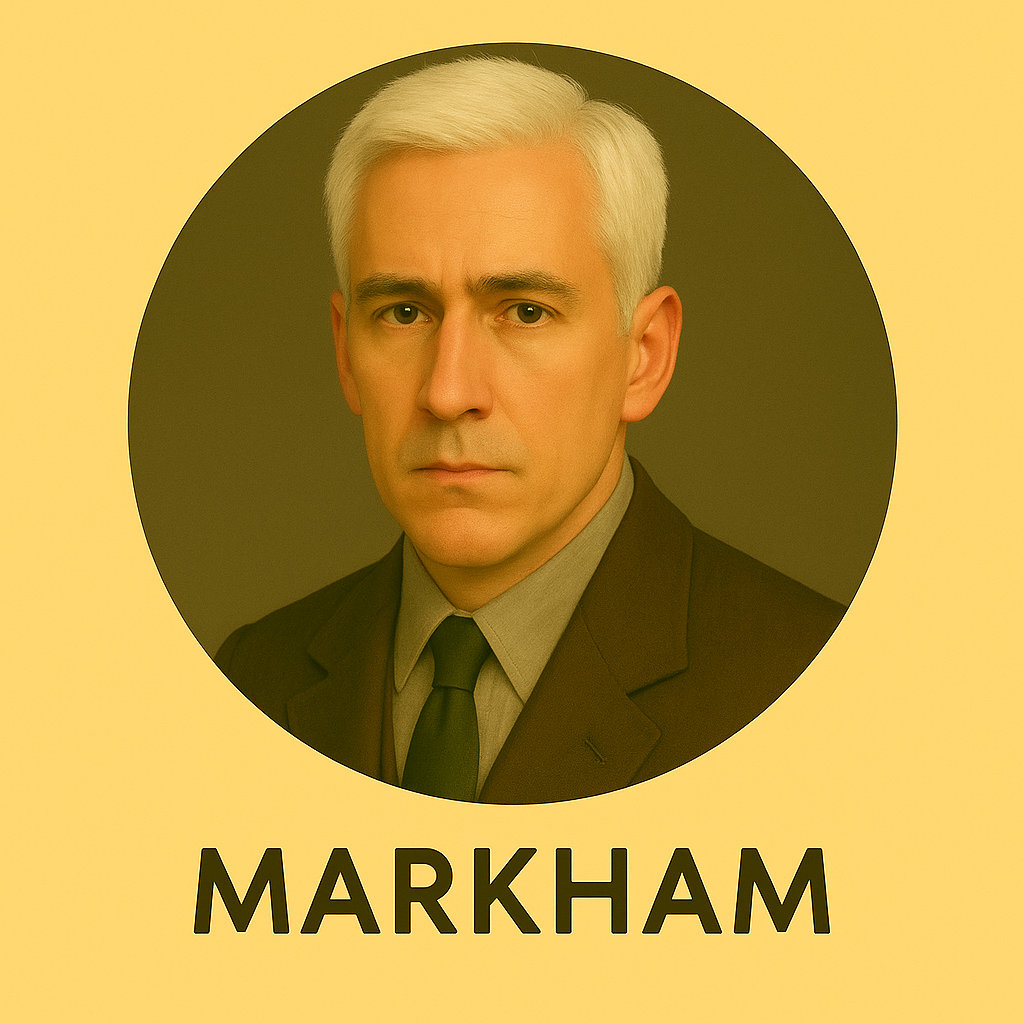
“By all that’s holy!” he exclaimed, raising his hands in mock astonishment.
“New York’s leading flâneur and art connoisseur is up and about!”
「なんてことだ!」|と、|彼は|大袈裟に|両手を|上げて、|驚いて|みせた。
「ニューヨークいちの|怠け者で、|美術|通の|ヴァンスが、|もう|起きているとは!」
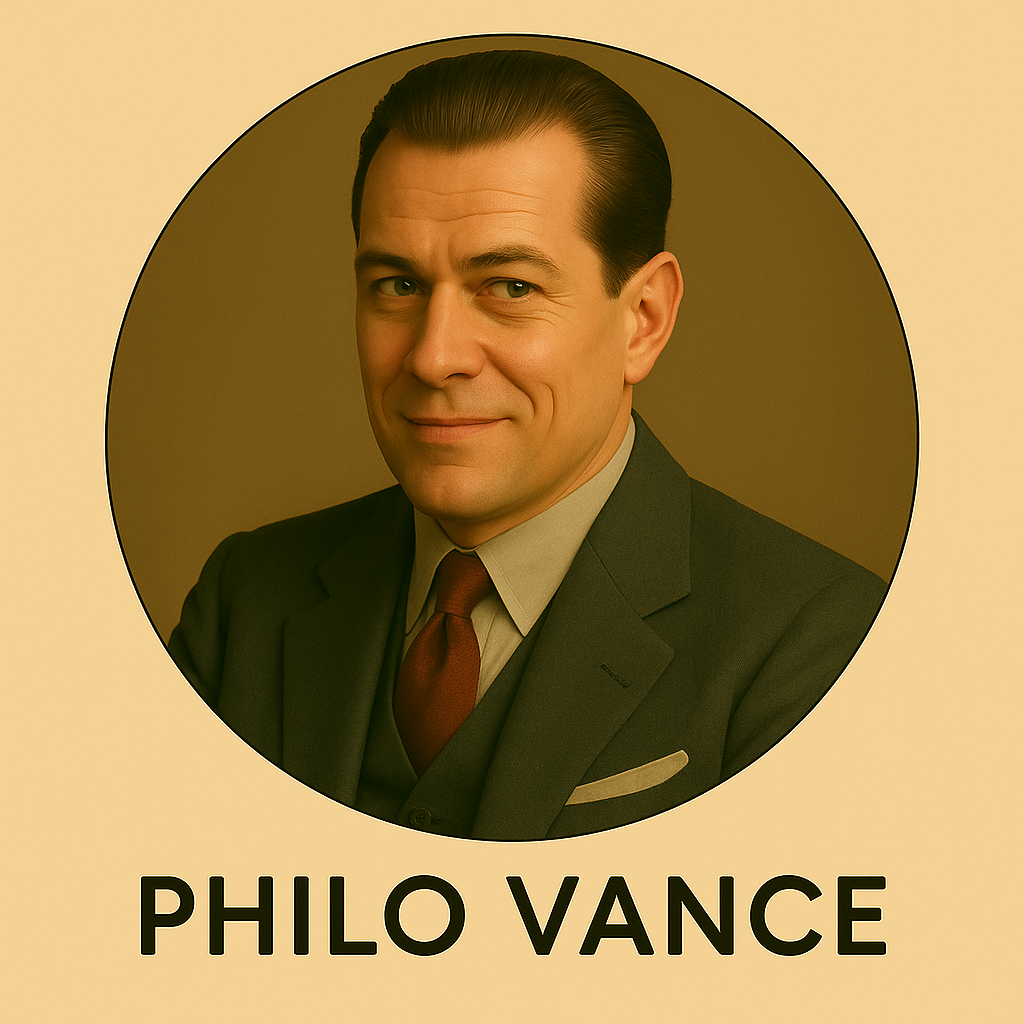
“And I am suffused with blushes at the disgrace of it,” Vance replied.
「そんな|不名誉な|ことを|言われると、|私は|恥ずかしさで|一杯に|なってしまうよ」|と、|ヴァンスは|こたえた。

It was evident, however, that the District Attorney was not in a jovial mood. His face suddenly sobered.
“Vance, a serious thing has brought me here. I’m in a great hurry, and merely dropped by to keep my promise. . . . The fact is, Alvin Benson has been murdered.”
しかし、|地方|検事が|陽気な|気分では|ないことは、|明らかだった。||彼は|たちまち|真剣な|顔になった。
「ヴァンス、|実は|きわめて|重大な|ことが|あって、|ここに|来たんだ。|私は|約束が|あって|とても|急いでいて|ちょっとだけ|立ち寄ったんだ。||実は、|<アルヴィン・ベンスン>が|殺されたのだ。」

Vance lifted his eyebrows languidly.
“Really, now,” he drawled.
“How messy! But he no doubt deserved it. In any event, that’s no reason why you should repine. Take a chair and have a cup of Currie’s incomp’rable coffee.”
And before the other could protest, he rose and pushed a bell-button.
ヴァンスは|気だるそうに|眉を|上げた。||「いやはや、|それはまた」|と、|彼は|ゆっくり|返事した。
「なんと|厄介な!||しかし|彼は|そうなって|当然だろうな。|いずれにせよ|君が|悩むような|理由はないよ。||すわって、|カーリーの|類稀なる|珈琲を|一杯|飲みたまえ。」
そして、|相手が|異論を|挟もうと|するまえに、|ヴァンスは|立ちあがり、|呼び鈴の|ボタンを|押した。

Markham hesitated a second or two.
“Oh, well. A couple of minutes won’t make any difference. But only a gulp.”
And he sank into a chair facing us.
<マーカム>は|少々|ためらった。
「まあ、いいだろう。|二、三分なら|構わない。|だが、|一口だけだ。」
そう|言うと、|私たちの|目の|前の|椅子に|ドサっと|腰を|おろした。
- As a matter of fact, the same water-colors that Vance obtained for $250 and $300, were bringing three times as much four years later.
↩︎ - I am thinking particularly of Bronzino’s portraits of Pietro de’ and Cosimo de’ Medici, in the National Gallery, and of Vasari’s medallion portrait of Lorenzo de’ Medici in the Vecchio Palazzo, Florence.
↩︎ - Once when Vance was suffering from sinusitis, he had an X-ray photograph of his head made; and the accompanying chart described him as a “marked dolichocephalic” and a “disharmonious Nordic.” It also contained the following data:—cephalic index 75; nose, leptorhine, with an index of 48; facial angle, 85°; vertical index, 72; upper facial index, 54; interpupilary width, 67; chin, masognathous, with an index of 103; sella turcica, abnormally large.
↩︎ - “Culture,” Vance said to me shortly after I had met him, “is polyglot; and the knowledge of many tongues is essential to an understanding of the world’s intellectual and æsthetic achievements. Especially are the Greek and Latin classics vitiated by translation.” I quote the remark here because his omnivorous reading in languages other than English, coupled with his amazingly retentive memory, had a tendency to affect his own speech. And while it may appear to some that his speech was at times pedantic, I have tried, throughout these chronicles, to quote him literally, in the hope of presenting a portrait of the man as he was. ↩︎
- 実際の|ところ、|ヴァンスが| 250ドルや|300ドルで|手に入れた|その|同じ|水彩画は、|4年後には|その|3倍の|値段で|取引|されていた。
ーーーーーーーーーーーーーーーーーーーーーー - とりわけ|思い出されるのは、|<ロンドン>の<ナショナル・ギャラリー>にある<ブロンズィーノ>の<ピエトロ・デ・メディチ>と<コジモ・デ・メディチ>の肖像、|そして<フィレンツェ>の<ヴェッキオ>宮殿にある、<ヴァザーリ>による<ロレンツォ・デ・メディチ>の|円形|肖像である。
ーーーーーーーーーーーーーーーーーーーーーー - あるとき|ヴァンスは|副鼻腔炎に|かかっていて、|頭部の|レントゲン|写真を|とらせた。||そのときの|記録には、|かれは|「顕著な|長頭型(頭が|細長い)」で|「不調和な|北欧型」と|記されていた。||さらに|つぎの|数値が|書かれていた。||頭長|幅|指数|75、|鼻は|細長型(鼻が|細く|長い)指数|48、|顔面|角|85度(顔の|傾きの|角度)、|垂直|指数|72(顔の|高さの|比率)、|上|顔面|指数|54(目から|上の|比率)、|瞳孔間|幅|67(両目の|間の|距離)、|顎は|前突型(顎が|前に|出ている)指数|103|トルコ|鞍(頭蓋底の|くぼみ)、異常に|大きい。
ーーーーーーーーーーーーーーーーーーーーーー - 「文化とは、|多言語的な|ものだ」|と、|私が|ヴァンスに|出会って|まもなく、|彼は|私に|言った。|「多くの|言葉を|知ることは、|世界の|知的で|美的な|成果を|理|するために|欠かせない。|とくに|ギリシアや|ラテンの|古典は、|翻訳|されると|損なわれて|しまう。」||私が|ここで|この|言葉を|引用|するのは、|彼が|英語|以外の|言語を|むさぼるように|読んで|いたことと、|驚くほどの|記憶力とが、|彼|自身の|話しぶりに|影響を|与えて|いたからだ。||その|話しぶりは、|ときに|衒学的||知識を|ひけらかして|いるように|見える||かもしれないが、|私は|この|記録を|通じて、|彼の|言葉を|できるかぎり|そのまま|引用し、|ありのままの|人間の|姿を|示そうと|つとめてきた。
